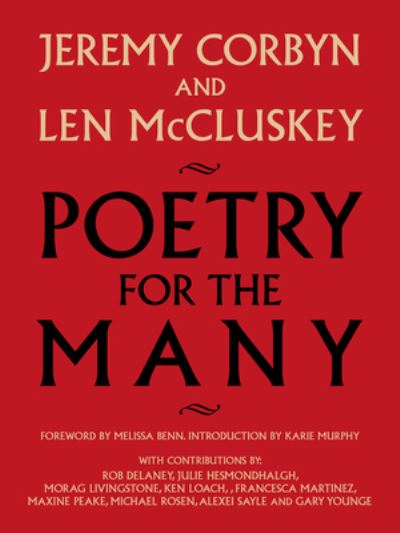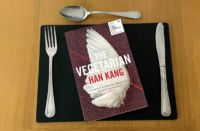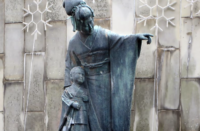Jeremy Corbyn and Len McCluskey, OR Books, New York and London, 2023

Poetry for the Many is a remarkable publication by two prominent British socialists, Jeremy Corbyn and Len McCluskey, whose public roles might not immediately suggest a foray into poetry. Corbyn and McCluskey are both well-known for their political activism, particularly on behalf of working class communities and the pursuit of social justice.
Both men have dedicated their careers to advancing workers’ rights and social justice. Corbyn, the MP for Islington North, gained prominence during his leadership of the Labour Party from 2015 to 2019. His tenure inspired a surge in party membership and gave hope to a generation that transformative change was possible. McCluskey, raised in Liverpool, rose to lead Unite, Britain’s largest and most influential union, using his position to support workers both domestically and internationally.
The book’s title, Poetry for the Many, echoes the slogan “For the Many, Not the Few”, popularised by Corbyn’s Labour Party during the 2017 general election. This phrase itself derives from Shelley’s The Masque of Anarchy, where he exhorts the working people of England to recognise their collective power: “Ye are many, they are few.” Shelley’s radical ideals resonate with the principles that Corbyn and McCluskey champion: equality, justice, and solidarity.
Poetry for the Many builds on this message, challenging the establishment, which seeks to forever enforce its hegemony of culture and the arts to represent their interests. The collection aims to show that poetry is not only accessible to working-class people but is also a powerful vehicle for expressing their struggles and aspirations.
The anthology contains a wide range of poems that have been meaningful to Corbyn and McCluskey in their lives and work. Some, like William Blake’s Jerusalem, are well-known. McCluskey views Jerusalem as a “call to arms” for all working people, while Corbyn comments on Wordsworth’s I Wandered Lonely as a Cloud as a reminder of the deep connection between appreciating nature and advocating for its preservation. Both men highlight the radical undertones in poems often included in the school curriculum, revealing the subversive potential of poets who are otherwise treated as pillars of the literary canon.
A significant portion of the collection focuses on themes of resistance, class struggle, colonialism, and oppression. For example, Langston Hughes’s The Negro Speaks of Rivers links the Black experience to the long history of human civilisation. War poets like Wilfred Owen and Isaac Rosenberg expose the horrific sacrifices made by working-class soldiers in service of the ruling class, while The Peat Bog Soldiers, written by concentration camp prisoners Johann Esser and Wolfgang Langhoff, voices defiance against fascism. Palestinian poet Mahmoud Darwish’s In Jerusalem reflects on the occupation of Palestine. Spanning the fourteenth to the twenty-first centuries, the collection traces a long tradition of resistance poetry.
Many of the included poems, however, are lesser-known and come from the voices of marginalised communities. They address experiences of poverty, repression, racism, and displacement. These poems challenge establishment cultural norms and celebrate the resilience of the oppressed. For Corbyn and McCluskey, these are the voices that need to be heard, as they represent the lived experiences of the Many. As political activists dedicated to advancing the rights of the working class, it is fitting that they foreground the expressions of struggle in poetry.
One of Corbyn’s selections is Home by Warsan Shire, a British poet born to Somali parents. Shire’s poem conveys the harrowing reality of refugees forced to flee their homes searching for safety. An excerpt captures the starkness of the refugee experience:
No one puts their children in a boat, unless the
water is safer than the land. No one would choose
days and nights in the stomach of a truck, unless
the miles travelled meant something more than journey …
The insults are easier to swallow than finding your
child’s body in the rubble.
Shire’s poem, like others in the collection, provides a voice to those whose stories are too often marginalised or silenced. The anthology, in this way, becomes not just a collection of poems but a vehicle for amplifying the struggles of the Many.
In addition to selecting and commenting on poems, Corbyn and McCluskey invited contributions from comrades in their shared political struggle. These fellow activists offered their own reflections on poems that have inspired them. This collaborative approach reflects the book’s democratic ethos, reinforcing the idea that cultural expression should be a collective endeavour.
Poetry for the Many serves as a resource for those seeking solace and inspiration in times of hardship. It is a testament to the enduring power of poetry to speak to the universal human desire for justice, solidarity, and freedom. By drawing on works from different epochs and regions, the anthology underscores the internationalism that lies at the heart of Corbyn and McCluskey’s political philosophy.
In essence, this collection is a call to arms. It celebrates the working class and their struggles while deepening our understanding of our shared humanity. Poetry for the Many encourages readers to see poetry not just as an art form, but as a means of mobilising for change, for the Many—not the Few.






